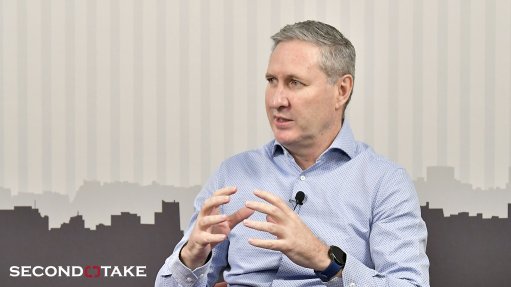Cloud ERP key to driving manufacturing competitiveness in SA
This article has been supplied as a media statement and is not written by Creamer Media. It may be available only for a limited time on this website.
Statistics South Africa recently reported that electricity production and distribution declined by 4% year-on-year in June, after dropping by 4.2% in May and 3.8% in April. An unreliable power supply is one of the major factors holding back economic growth, but initiatives like Operation Vulindlela offer some hope.
Operation Vulindlela is the government’s effort to accelerate structural reforms against the backdrop of the unstable electricity supply, inadequate digital communication infrastructure, unsustainable water supply, inefficient freight transport, and low investor confidence. The joint initiative by the Presidency and National Treasury hopes to bring about economic reconstruction and recovery.
In his keynote address at this year’s Manufacturing Indaba, Trade and Industry Minister Ebrahim Patel noted that innovation and cooperation between companies in the value chain are vital to increasing South Africa’s competitiveness. This is especially true as the manufacturing industry recovers from COVID turbulence.
Supply chains are still under strain, and the July 2021 unrest and KwaZulu-Natal floods have only exacerbated the situation. Some components and commodities remain in short supply, and low consumer and investor confidence further impact manufacturing output. Enterprises must increase visibility in their supply chains to efficiently respond to disruptions and adapt to evolving market needs.
Enter structural reforms
For Gerhard Hartman, Vice President, Medium Business for Sage Africa & Middle East, structural reforms are essential to creating and lifting economic growth. He says digital transformation, when paired with structural reforms, can help to catalyse growth and competitiveness in South Africa’s manufacturing sector. Digital technologies could help manufacturers drive agility, innovation and efficiency, positioning them to take advantage of the opportunities of structural reforms.
Powerful analytics, artificial intelligence (AI) and machine learning enable manufacturers to automate repetitive, low-value activities. Cloud-based enterprise resource planning (ERP) software can streamline supply chain and logistics management. Manufacturers can monitor and optimise critical factors, such as energy and water consumption, logistics, inventory, and the health of their machines, from a single dashboard.
“Forward-thinking manufacturers are looking to move beyond outdated legacy systems and monolithic ERP towards more flexible, modular solutions that allow them to monitor the supply chain in real-time and collaborate seamlessly across the enterprise and value chain,” Hartman says.
“These next-generation business management systems offer insights in real-time, overcoming the data siloes and redundant processes of legacy technology. Inefficiencies and errors are reduced, which lowers unnecessary costs and delays. Cloud ERP solutions enable enterprises to scale and streamline their business operations.”
Making a case for cloud-based ERP
Unlike an on-premises system where data is hosted on a business’s local hardware, a vendor hosts cloud or Software-as-a-Service (SaaS) software in a secure, hyper-scale data centre. The user accesses this software and their data via the internet. The vendor will look after the platforms and hardware, and deliver a solution that is often superior in terms of security, scalability, and functionality.
The costs of deploying cloud-based ERP are also significantly lower than on-premise ERP, which usually comes with significant upfront implementation fees and ongoing licence, hardware, labour and maintenance costs. Cloud ERP gives businesses the added benefits of immediate updates, always-compliant software, and the ability to treat it as an operating expense. Implementation is also much faster, with minimal disruption to workflows and processes.
“The large expenditure associated with on-premises tends to deter small to mid-sized businesses. However, when SMEs opt for a cloud-based ERP solution, the cost is more evenly spread across the product’s lifecycle. The low entry cost required to introduce a cloud-based ERP system is part of the reason why more than 90% of enterprises have gravitated towards multi-cloud options,” concludes Hartman.
Comments
Announcements
What's On
Subscribe to improve your user experience...
Option 1 (equivalent of R125 a month):
Receive a weekly copy of Creamer Media's Engineering News & Mining Weekly magazine
(print copy for those in South Africa and e-magazine for those outside of South Africa)
Receive daily email newsletters
Access to full search results
Access archive of magazine back copies
Access to Projects in Progress
Access to ONE Research Report of your choice in PDF format
Option 2 (equivalent of R375 a month):
All benefits from Option 1
PLUS
Access to Creamer Media's Research Channel Africa for ALL Research Reports, in PDF format, on various industrial and mining sectors
including Electricity; Water; Energy Transition; Hydrogen; Roads, Rail and Ports; Coal; Gold; Platinum; Battery Metals; etc.
Already a subscriber?
Forgotten your password?
Receive weekly copy of Creamer Media's Engineering News & Mining Weekly magazine (print copy for those in South Africa and e-magazine for those outside of South Africa)
➕
Recieve daily email newsletters
➕
Access to full search results
➕
Access archive of magazine back copies
➕
Access to Projects in Progress
➕
Access to ONE Research Report of your choice in PDF format
RESEARCH CHANNEL AFRICA
R4500 (equivalent of R375 a month)
SUBSCRIBEAll benefits from Option 1
➕
Access to Creamer Media's Research Channel Africa for ALL Research Reports on various industrial and mining sectors, in PDF format, including on:
Electricity
➕
Water
➕
Energy Transition
➕
Hydrogen
➕
Roads, Rail and Ports
➕
Coal
➕
Gold
➕
Platinum
➕
Battery Metals
➕
etc.
Receive all benefits from Option 1 or Option 2 delivered to numerous people at your company
➕
Multiple User names and Passwords for simultaneous log-ins
➕
Intranet integration access to all in your organisation
















